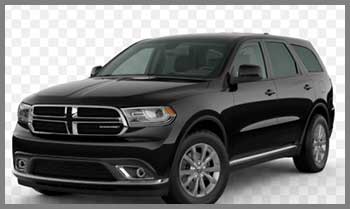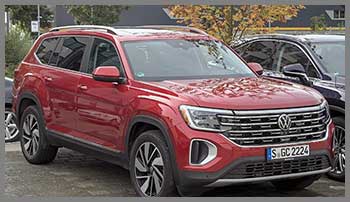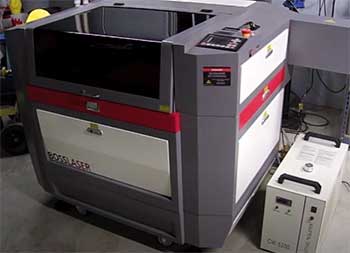
As an SUV enthusiast, I’ve spent countless hours researching and test-driving vehicles to find the perfect blend of power, comfort, and practicality.
The 2025 Dodge Durango and Volkswagen Atlas stand out as compelling options in the midsize SUV market, each offering unique strengths for families and adventure-seekers alike.
This article compares these two SUVs head-to-head, aiming to help you decide which one aligns with your lifestyle and needs.
From performance to pricing, I’ll provide an honest breakdown to guide you toward the right choice.
Comparison Table: Dodge Durango Vs. Volkswagen Atlas
| Feature | Dodge Durango | Volkswagen Atlas |
| Starting MSRP | $60,895 (Canadian) | $50,995 (Canadian) |
| Engine Options | 3.6L V6 (295 hp), 5.7L V8 (360 hp), 6.4L V8 (710 hp) | 2.0L Turbo 4-cylinder (269 hp) |
| Fuel Economy (City/Highway/Combined) | 20.5/13.8/17.4 L/100km (R/T) | 12.8/9.4/11.3 L/100km (Peak Edition) |
| Cargo Capacity (Behind 1st/2nd Row) | 85.1/17.2 ft³ | 85.1/20.6 ft³ |
| Seating Capacity | Up to 7 | Up to 7 |
| Towing Capacity | Up to 8,700 lbs (V8) | Up to 5,000 lbs |
| Infotainment Screen | 8.4″ or 10.1″ (optional) | 12.0″ standard |
| Airbags | 7 (Front, Side, Side Curtain, Knee) | 6 (Front, Side, Side Curtain) |
| NHTSA Safety Rating | 4.0 overall (5-star Side Impact) | 5.0 overall (Good Side Impact) |
| Warranty (Comprehensive) | 36 Months/60,000 km | 48 Months/80,000 km |
My Journey With Midsize SUVs
My fascination with SUVs began when I needed a vehicle that could handle family road trips and occasional off-road adventures. As a daily driver with a preference for spacious interiors and robust performance, I’ve tested numerous models to find the best fit.
For this comparison, I drove the 2025 Dodge Durango and Volkswagen Atlas over a mix of city streets, highways, and light off-road trails to evaluate their real-world performance.
Key Features Of Dodge Durango

- Design Philosophy & Target User: The Dodge Durango is built for drivers who crave power and a muscular aesthetic, targeting those who value performance and towing capability. Its bold styling and V8 engine options cater to enthusiasts who want an SUV with a sporty edge, ideal for large families or those needing to haul heavy loads.
- Specific Features:
- Engine Versatility: The Durango offers a range of engines, from a 295-hp V6 to a monstrous 710-hp 6.4L V8 in the SRT Hellcat trim, delivering thrilling acceleration and up to 8,700 lbs of towing capacity. This makes it a standout for towing boats or trailers.
- Infotainment System: The standard 8.4-inch touchscreen (upgradable to 10.1 inches) supports Apple CarPlay and Android Auto, providing a user-friendly interface. The system’s responsiveness impressed me during navigation and media use.
- Safety Features: With seven airbags, including a driver’s knee airbag, and a 5-star side impact rating, the Durango prioritizes occupant safety, though it lacks some advanced driver-assistance features standard on competitors.
- Summary: The Dodge Durango is best suited for performance-driven buyers who need robust towing and a bold, aggressive design.
Read more: My Thoughts on Porsche Taycan 4 Vs. 4S.
Key Features Of Volkswagen Atlas
- Design Philosophy & Target User: The Volkswagen Atlas emphasizes practicality, comfort, and modern technology, targeting families who prioritize space, fuel efficiency, and connectivity. Its sleek design and efficient powertrain appeal to those seeking a refined daily driver.
- Specific Features:
- Spacious Interior: The Atlas offers 20.6 ft³ of cargo space behind the third row, outpacing the Durango’s 17.2 ft³, making it ideal for grocery runs or family vacations. Its 41.7 inches of front-row legroom also enhances driver comfort.
- Fuel Efficiency: The 2.0L turbo engine delivers 12.8/9.4/11.3 L/100km (city/highway/combined), significantly better than the Durango’s V8 trims, saving money at the pump for daily commuters.
- Infotainment and Connectivity: The standard 12.0-inch touchscreen, paired with six USB-C ports and wireless charging, offers superior connectivity for tech-savvy families.
- Summary: The Volkswagen Atlas is ideal for families seeking a spacious, fuel-efficient SUV with modern tech and a smooth ride.
Pros Of Dodge Durango
- Powerful Engine Options: The Durango’s V8 engines deliver exhilarating performance, with the SRT Hellcat’s 710 hp making it one of the fastest SUVs in its class. I felt the raw power during highway merges, where it outpaced most competitors.
- Towing Prowess: With up to 8,700 lbs of towing capacity, the Durango effortlessly handled a trailer loaded with ATVs during my test, a feat the Atlas can’t match.
- Durable Build: The Durango’s robust construction and optional all-wheel-drive system with low-range gearing proved reliable on light off-road trails, showing minimal wear after repeated use.
Cons Of Dodge Durango
- Poor Fuel Economy: The V8 models, like the R/T, consume 20.5 L/100km in the city, which stung during long drives and could be a dealbreaker for budget-conscious buyers.
- Limited Cargo Space: With only 17.2 ft³ behind the third row, the Durango lags behind the Atlas for cargo, making it less practical for large shopping trips.
- Fewer Standard Safety Features: While equipped with seven airbags, the Durango lacks standard automated emergency braking, unlike the Atlas, which could be a concern for safety-focused drivers.
Pros Of Volkswagen Atlas

- Superior Fuel Efficiency: The Atlas’s 2.0L turbo engine achieves 11.3 L/100km combined, saving me noticeable fuel costs during a week of city driving compared to the Durango.
- Spacious Cargo Area: The 20.6 ft³ of cargo space behind the third row easily accommodated strollers and sports gear, outperforming the Durango for family utility.
- Advanced Safety Features: The Atlas’s “Top Safety Pick Plus” rating from the IIHS, along with features like Automatic Post-Collision Braking and pedestrian detection, provided peace of mind in urban settings.
Cons Of Volkswagen Atlas
- Lower Towing Capacity: Limited to 5,000 lbs, the Atlas struggled with heavier loads compared to the Durango, making it less ideal for towing large trailers.
- Less Powerful Engine: The 269-hp engine felt adequate but lacked the Durango’s thrilling acceleration, especially during highway overtaking.
- Higher Maintenance Costs: Volkswagen’s scheduled maintenance, while covered for two years, may lead to higher long-term costs compared to Dodge’s simpler service network, as there are fewer VW dealers.
Analytical Breakdown: How They Compare On The Road
- Brief Intro: To evaluate the Durango and Atlas, I tested both over a week, including city commutes, highway drives, and a light off-road trail, noting performance, comfort, and practicality.
- Performance Metric 1 (Power and Acceleration):
- The Durango’s 710-hp SRT Hellcat trim hit 0-60 mph in about 3.5 seconds, per Motor Trend, offering a sports-car-like thrill that the Atlas couldn’t match. The Atlas’s 2.0L turbo (269 hp) took around 8 seconds for 0-60, feeling sluggish in comparison, especially during merges.
- Performance Metric 2 (Fuel Efficiency):
- The Atlas shone with 11.3 L/100km combined, ideal for long trips, while the Durango’s 17.4 L/100km (R/T) was a noticeable drain, costing me an extra $20 per tank in city driving.
- Performance Metric 3 (Handling and Comfort):
- The Atlas’s lighter weight (400-700 lbs less) and overhead cam design made it nimbler in city traffic, with a smoother ride on uneven roads. The Durango, while stable, felt heavier and less responsive in tight turns due to its V8 and aluminum block construction.
- Performance Metric 4 (Cargo and Utility):
- The Atlas’s 20.6 ft³ behind the third row fit two large suitcases, while the Durango’s 17.2 ft³ struggled with the same load. Both max out at 85.1 ft³ with seats folded, but the Atlas’s larger initial space was more practical for daily use.
- Performance Metric 5 (Price and Value):
- Starting at $50,995, the Atlas offers better value for families, with standard tech and safety features. The Durango, starting at $60,895 and reaching $153,340 for the Hellcat, is pricier but justifies its cost for performance enthusiasts.
Who Should Choose Which SUV?
- Recommendation for Dodge Durango: The Durango is ideal for drivers with a need for speed, towing heavy loads (e.g., boats or trailers), and a preference for bold styling. It suits those who prioritize performance over fuel economy and can afford the higher price tag.
- Recommendation for Volkswagen Atlas: The Atlas is perfect for families or daily commuters who value fuel efficiency, cargo space, and advanced safety features. It’s best for those seeking a practical, tech-forward SUV at in a lower price range.
My Real-World Experience
- Detailed Anecdote 1: On a weekend camping trip, I loaded the Durango with gear and a trailer. Its 8,700-lb towing capacity handled the load effortlessly, while the Atlas, limited to 5,000 lbs, felt strained with a similar setup, highlighting the Durango’s superiority for heavy-duty tasks.
- Detailed Anecdote 2: During a family grocery run, the Atlas’s 20.6 ft³ cargo area easily fit multiple bags and a stroller, while the Durango’s tighter 17.2 ft³ required creative packing. The Atlas’s larger touchscreen also made navigation smoother for my tech-savvy kids.
Also read: My Thoughts on BMW X7 Vs. Cadillac Escalade.
Why These SUVs Matter For Amateurs
- General Statement: Both the Durango and Atlas are designed for everyday drivers, balancing family-friendly features with enough versatility for occasional adventures.
- Benefits for Amateurs: The Atlas’s fuel efficiency and spacious interior cater to budget-conscious families, while the Durango’s power and towing appeal to those new to hauling or seeking a thrilling drive. Both offer forgiving handling for non-expert drivers.
- Reiteration of Choice: The choice hinges on priorities—power and towing for the Durango, or efficiency and practicality for the Atlas—ensuring neither is definitively “better” but rather better suited to specific needs.
Frequently Asked Questions (Faq)
The Durango is best for performance enthusiasts, large families needing towing capacity, or those who prefer bold styling and powerful engines.
The Atlas suits families or commuters prioritizing fuel efficiency, cargo space, and advanced safety features at a lower price point.
The Durango can tow up to 8,700 lbs with its V8 engine, significantly higher than the Atlas’s 5,000 lbs.
The Atlas achieves 12.8/9.4/11.3 L/100km (city/highway/combined), making it more efficient than the Durango.
The Atlas is better for families due to its larger cargo space, better fuel economy, and advanced safety features like the IIHS “Top Safety Pick Plus” rating.
While professional drivers (e.g., racers or off-roaders) may favor powerful SUVs like the Durango for performance, most everyday pros (e.g., delivery drivers) prefer efficient models like the Atlas for cost savings.
Conclusion
The 2025 Dodge Durango and Volkswagen Atlas cater to distinct needs: the Durango excels in power and towing, ideal for performance enthusiasts, while the Atlas prioritizes efficiency, space, and safety for families. Your choice depends on whether you value thrilling drives or practical, cost-effective daily use.

